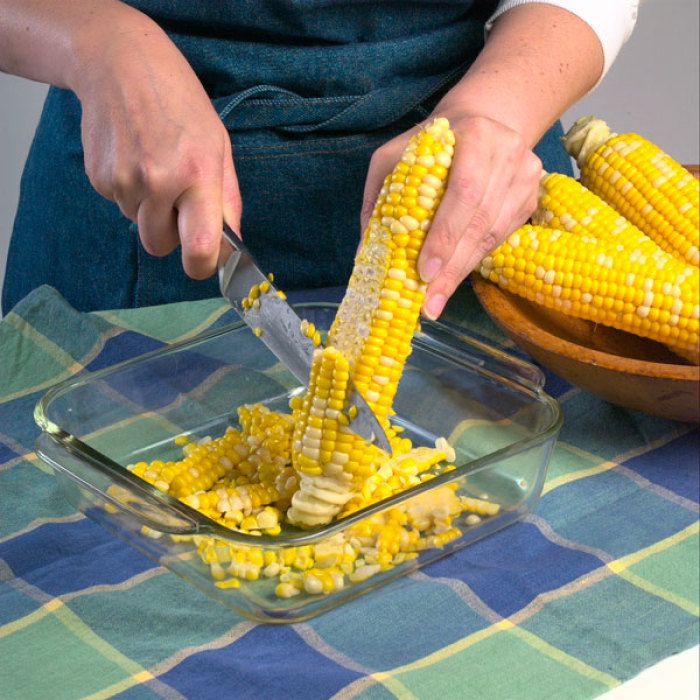
The words “fresh sweet corn” conjure up fond memories and the anticipation of good eating. Corn on the cob is comfort food for most people. So in an effort to get that flavor sensation to last well into the winter, I prepare it properly and freeze it promptly in meal-size packages. Some of my most cherished mealtime memories are of my mother serving a steaming dish of frozen-fresh sweet corn during the winter. She had a certain respect for corn, knowing instinctively that it was very nutritious, especially when served with beans, and it was one vegetable all her family enjoyed.
I’d like to tell you about my mother’s way of preparing corn to preserve that fresh-from-the-garden taste and texture. A day before production began, she would admonish her family that the next day would be corn-freezing day, so everyone should be around to share the work. On the big day, a large pot of water was put on the stove to boil even before the corn was picked. Only plump, fully mature ears were snapped off the stalk; these were the ears with silk that had dried and turned brown. The proper stage of maturity was very important, not too young and not too old.
Freshness was also paramount. We picked only as much as we could prepare in the time allowed; ears that were kept overnight produced an inferior product. All the children were expected to help shuck, even those with small fingers that could strip only one leaf at a time. As quickly as possible, the ears were plunged into the boiling water and blanched for about 5 minutes. Then the ears were removed and dunked in a pan of cold water.
When the ears were cool enough to handle, the special cutting process began, with everyone but the youngest children helping. This is the method I still follow. I hold the cob in one hand, and cut off strips of kernels with a sharp, medium-length knife, from the cob’s tip to its stem end. Resting the cob in a low cake pan is a good way to catch the kernels. The secret to flavor perfection is to cut off only the top half of the kernels. This eliminates the hard ends of the kernels and woody bits of cob. Then I scrape the cob lightly to remove the milky juice and germ from the part of the kernel that is left on the cob. The juice and germ add to the eating and keeping qualities of the frozen corn.
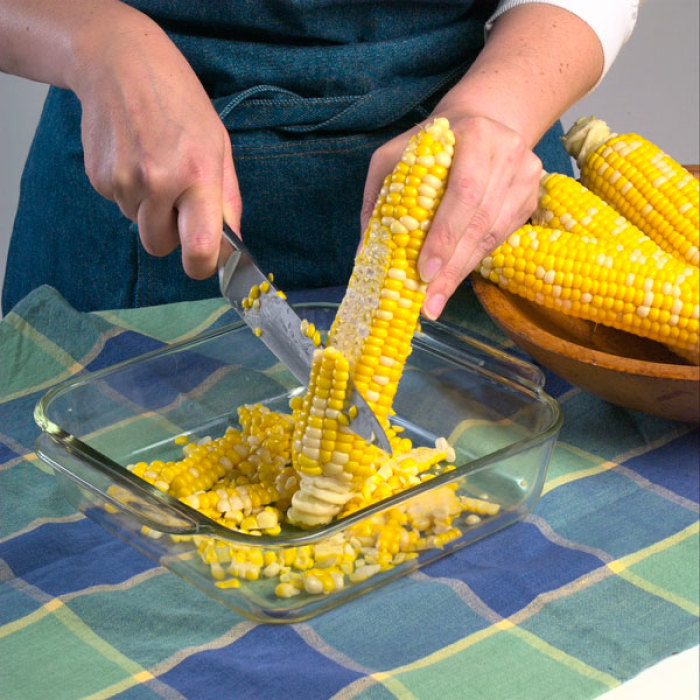 |
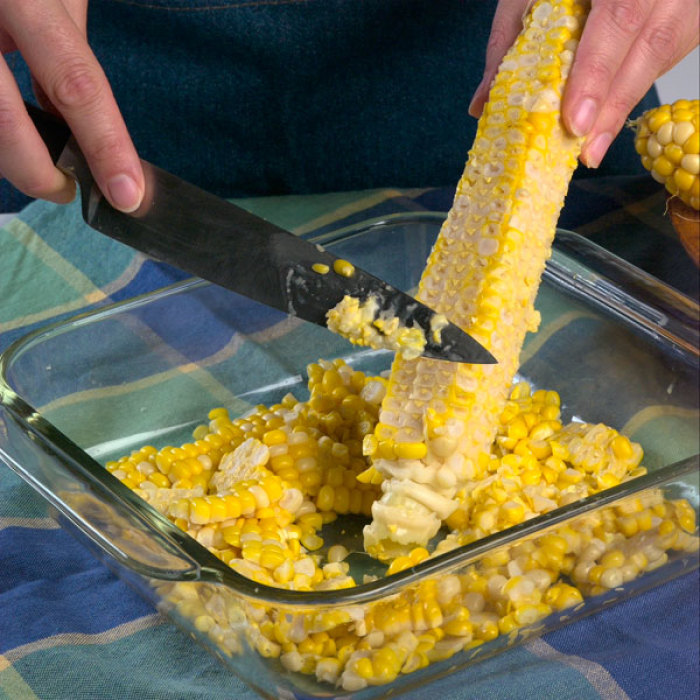 |
|
| Cut off only the top half of the corn kernels, left, then lightly scrape the remaining halves, above, to remove their flavorful juices and germ. A low pan helps catch the kernels and juice. | ||
I spoon both corn and juice into freezer containers or bags and immediately place them in the coldest part of the freezer to “flash” freeze the corn. I always label the package with the date and contents. When solidly frozen, corn will keep longer than a year, but it’s best if used within a year of processing.
Which corn varieties freeze best?
Nearly as important as the freezing technique is the variety of corn you use, whether it’s homegrown or from a market. Interestingly, older varieties of corn freeze much better than the new sugar-enhanced varieties. New varieties retain their sweetness longer, but lack the complex flavor and good texture of older varieties, fresh or frozen. Look for the old shoe peg corn called ‘Country Gentleman’, the good yellow heirloom ‘Golden Bantam’, the old favorite white ‘Silver Queen’, and another yellow variety, ‘Seneca Chief’. Almost any heirloom or major seed company will carry at least one of these older varieties. Some new varieties, such as ‘How Sweet It Is’, mimic the flavor of older varieties and freeze well. Whether you freeze old style or sugar-enhanced, the method I’ve described will make the most of your corn.
Finally, if you cannot grow corn, search for a market or stand that sells “picked today” produce. Choose only those ears with stem ends that are still moist and green, not dried. Keep picked or purchased corn as fresh as possible by placing the stem ends in water during transport.
by Sylvia Gatzy
October 1999
from issue #22

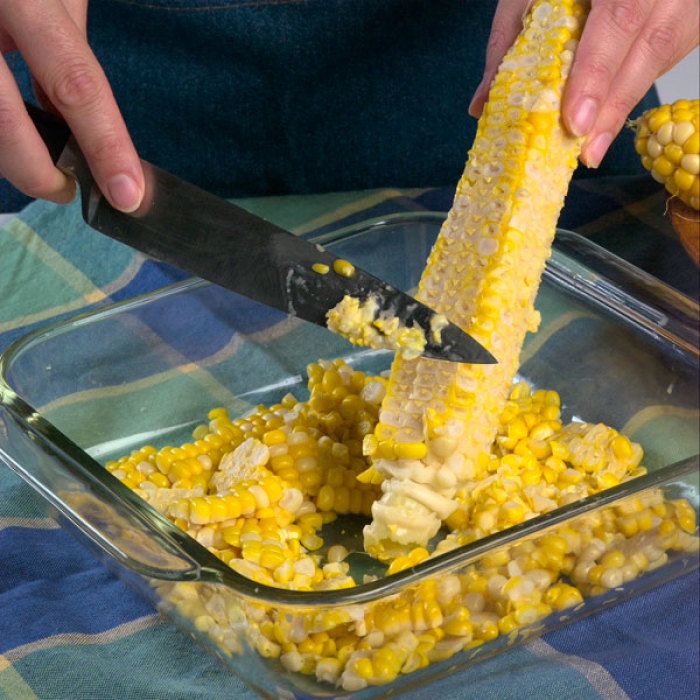




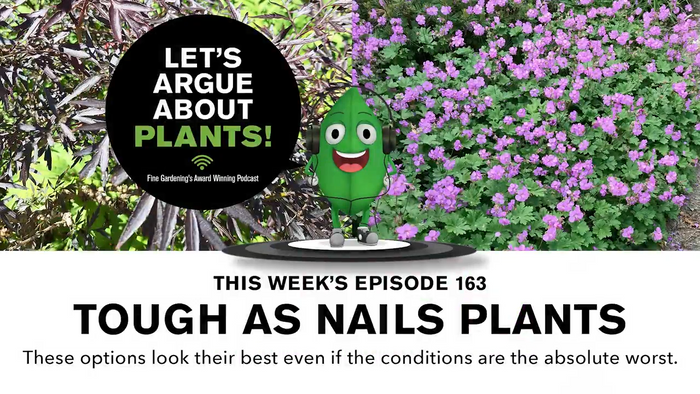
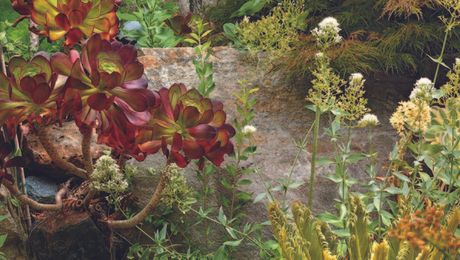
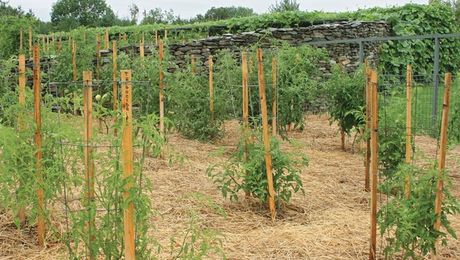









Comments
Log in or create an account to post a comment.
Sign up Log in